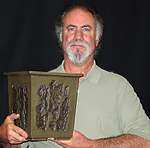Collected American Beech
+4
Todd Ellis
Russell Coker
Mr. Moody
Paul Landis
8 posters
Page 1 of 1
 Re: Collected American Beech
Re: Collected American Beech
Nice!
I have one similar that I chopped this year. I'll pull it out the ground next year.
I have one similar that I chopped this year. I'll pull it out the ground next year.

Mr. Moody- Member
 Re: Collected American Beech
Re: Collected American Beech
Paul Landis wrote:I was lucky to find one this big on it's own roots.
Paul, what do you mean by that?
Personally, I'd like to find one with low branches, AND has better taper than a telephone pole.
R

Russell Coker- Member
 Re: Collected American Beech
Re: Collected American Beech
Russell Coker wrote:
Personally, I'd like to find one with low branches, AND has better taper than a telephone pole.
R
I chopped mine at the lowest branch to hopefully promote backbudding.

Mr. Moody- Member
 Re: Collected American Beech
Re: Collected American Beech
My experience with these beeches is that they will bud back. Just give it time. Personally, I never saw a telephone pole with a flared base like your tree. 
Best, Todd
Best, Todd

Todd Ellis- Member
 Re: Collected American Beech
Re: Collected American Beech
Todd,
Personally, I've never found a beech that had anything BUT "a flared base" - and nothing else. No movement. No low branches. No taper. No nothin'. But they aren't very common here either.
Personally, I've never found a beech that had anything BUT "a flared base" - and nothing else. No movement. No low branches. No taper. No nothin'. But they aren't very common here either.

Russell Coker- Member
 Re: Collected American Beech
Re: Collected American Beech
I have seen lots of beeches with lots of character. I have collected at beaver ponds and have found nice trees which were chewed off, then sprouted into interesting broomtype canopies. I forests, many beeches are damaged by falling trees, limbs, erosioin near creeks and rivers, etc, that have interesting shapes. You have to hunt for them, but they are out there. Most do have a flared base of some kind. To find one with complete radial roots around the trunk for bonsai is a treasure.
Todd
Todd

Todd Ellis- Member
 Re: Collected American Beech
Re: Collected American Beech
I would raise the level of substrate to try to generate smaller roots on the main roots of the tree. They are way too long and will have to be cut later.
Alain Bertrand- Member
 Re: Collected American Beech
Re: Collected American Beech
Thanks for the replies all. Thanks for the suggestion Alain..I will do that. I knew the roots had to be cut back yet but covering with substrate is a great idea. Russell...typically most beech we find up here in PA tend to be root connected in some fashion...this one was growing in a pocket in between the much larger root flare of a large oak.
The intention is to chop this trunk again next year after it recovers for awhile and pops out some buds. I have since wrapped the trunk in sphagnum to encourage the adventitious buds. And yes Russell 99% of the beech here are straight as a telephone pole!! LOL Hence the trunk chop and 10 year project!!
The intention is to chop this trunk again next year after it recovers for awhile and pops out some buds. I have since wrapped the trunk in sphagnum to encourage the adventitious buds. And yes Russell 99% of the beech here are straight as a telephone pole!! LOL Hence the trunk chop and 10 year project!!

Paul Landis- Member
 Re: Collected American Beech
Re: Collected American Beech
Paul, I understand your comment about smaller Beech in the woods coming up from other tree roots. our woods near me is full of Beeches and in collecting some for a large forest years ago this was very frustrating. I did manage to collect a large one like yours with some branches on it and after about 5 years of working on it i killed it by repotting one year after it had leafed out.
i decided to make a big forest in a huge Chinese oval pot I had. I made one with about 25 collected trees of various sizes. The next spring several were dead and I had to go collect some more of the right sizes and fit them in. The next spring, a few more dead. Also replaced them. The third year....well, you get it. I finally got so PO'd that I tore it apart and saved only the main tree and stashed the huge pot behind my tea house where it still is!
I've worked on the main tree for quite a few years now....REALLY SLOW in developing branches and twigging!
Here is a shot I took about 3 years ago for someone. Note the Yardstick.

Also, hard to get leaves reduced on American variety.
Make sure when overwintering that it's in a Rabbit-free zone. Don't ask me how I know this!
You shoulda dug a hornbeam!
i decided to make a big forest in a huge Chinese oval pot I had. I made one with about 25 collected trees of various sizes. The next spring several were dead and I had to go collect some more of the right sizes and fit them in. The next spring, a few more dead. Also replaced them. The third year....well, you get it. I finally got so PO'd that I tore it apart and saved only the main tree and stashed the huge pot behind my tea house where it still is!
I've worked on the main tree for quite a few years now....REALLY SLOW in developing branches and twigging!
Here is a shot I took about 3 years ago for someone. Note the Yardstick.

Also, hard to get leaves reduced on American variety.
Make sure when overwintering that it's in a Rabbit-free zone. Don't ask me how I know this!
You shoulda dug a hornbeam!

Dale Cochoy- Member
 Re: Collected American Beech
Re: Collected American Beech
Thanks for the info Dale!! Yeah I've been told they were difficult which made me immediately want one!!!!! LOL

Paul Landis- Member
 Re: Collected American Beech
Re: Collected American Beech
Paul...It looks like you collected alot of fine roots which should increase your odds for success. My experience with Beech is when you do chop the tree - you will get some bud breaks well below the chop. The last few inches [from the first bud break to the chop line] will slowly dry out. The tree will create a distinct line - like a collar - where the live and dead areas meet. In a few years when that collar is established - you carve down to that zone. The scar will take along time to heal - so it helps if you place the chop in the back of the tree.
Getting really good taper with a Beech is difficult - so you may want to consider planting it back in the ground at some point - you should get explosive growth - and you will need it - to resolve the chop.
You can wire some of the new growth carefully to create some movement - but watch carefully because you will get wire marks in the bark - that will never go away.
I prefer your very first photo that you posted - there is a big gentle curve it appears from that angle - if you can get the new growth to come back the opposite direction - you might have something.
Think about how low the final chop will be - the tree appears to be 2 " to 3" in diameter ? - the lower you make the final chop - the easier you will have making the transition from the new growth. Good luck......Tom.
Getting really good taper with a Beech is difficult - so you may want to consider planting it back in the ground at some point - you should get explosive growth - and you will need it - to resolve the chop.
You can wire some of the new growth carefully to create some movement - but watch carefully because you will get wire marks in the bark - that will never go away.
I prefer your very first photo that you posted - there is a big gentle curve it appears from that angle - if you can get the new growth to come back the opposite direction - you might have something.
Think about how low the final chop will be - the tree appears to be 2 " to 3" in diameter ? - the lower you make the final chop - the easier you will have making the transition from the new growth. Good luck......Tom.
tom tynan- Member
 Re: Collected American Beech
Re: Collected American Beech
Paul Landis wrote:Thanks for the info Dale!! Yeah I've been told they were difficult which made me immediately want one!!!!! LOL
Me too!
I'm willing to invest years into it, if it is willing to stay alive.

Mr. Moody- Member
 Re: Collected American Beech
Re: Collected American Beech
tom tynan wrote:Paul...It looks like you collected alot of fine roots which should increase your odds for success. My experience with Beech is when you do chop the tree - you will get some bud breaks well below the chop. The last few inches [from the first bud break to the chop line] will slowly dry out. The tree will create a distinct line - like a collar - where the live and dead areas meet. In a few years when that collar is established - you carve down to that zone. The scar will take along time to heal - so it helps if you place the chop in the back of the tree.
Getting really good taper with a Beech is difficult - so you may want to consider planting it back in the ground at some point - you should get explosive growth - and you will need it - to resolve the chop.
You can wire some of the new growth carefully to create some movement - but watch carefully because you will get wire marks in the bark - that will never go away.
I prefer your very first photo that you posted - there is a big gentle curve it appears from that angle - if you can get the new growth to come back the opposite direction - you might have something.
Think about how low the final chop will be - the tree appears to be 2 " to 3" in diameter ? - the lower you make the final chop - the easier you will have making the transition from the new growth. Good luck......Tom.
Thanks for the extensive info Tom--I really appreciate it!! Yes--the tree is 2-3" in diameter. It was probably 20ft high or so. I was planning on doing the final chop much lower next year...would it be better to do the final chop now or let the tree recover for a year and let it throw out some bud breaks? I noticed the same about the first pic when I saw them posted here--I agree the movement is better from that side.

Paul Landis- Member
 Re: Collected American Beech
Re: Collected American Beech
Hi Paul, since beech is mostly slow reacting,
attention should be payed on the miccorhizzum fungus.
Beech is one of the deciduous where this fungus is very important.
I hope you did not washed the roots, he will not die of that,
but it certainly not helps.
Regards, Sunip
attention should be payed on the miccorhizzum fungus.
Beech is one of the deciduous where this fungus is very important.
I hope you did not washed the roots, he will not die of that,
but it certainly not helps.
Regards, Sunip
sunip- Member
 Re: Collected American Beech
Re: Collected American Beech
Paul....Let the Beech tree grow for at least 1 year - you need it to get stronger, and hopefully pop some new buds lower on the trunk. Then you pick the new buds and figure out where to chop based on where the buds are located. If you look at the tree right now - it will likely dieback to the first small branches- maybe 3" down the trunk from where you chopped. Let the tree decide where it will dieback - then you chop.
It is best to have at least 2 buds near the new chop line; mostly likely the chop will be at an angle - although some disagree on this point. If you have one bud at the higher side and another at the lower side - you can help close the wound - make sense? You also have to ask your self - how realistic will it look to have 1/2 or 3/4" thick new branches [over time] very high up the trunk. it is tough to make that transition high up the trunk.
Tom
It is best to have at least 2 buds near the new chop line; mostly likely the chop will be at an angle - although some disagree on this point. If you have one bud at the higher side and another at the lower side - you can help close the wound - make sense? You also have to ask your self - how realistic will it look to have 1/2 or 3/4" thick new branches [over time] very high up the trunk. it is tough to make that transition high up the trunk.
Tom
tom tynan- Member
 Re: Collected American Beech
Re: Collected American Beech
Thanks Tom. I definitely figured on another chop!! LOL Yes that is what I figured...doing the final chop next year when we see what pops!! Right now i have the trunk wrapped in sphagnum as well.

Paul Landis- Member
 Similar topics
Similar topics» American beech
» American Bonsai at the NC Arboretum
» Collected Beech
» American Beech Somethingorother
» (Fagus sylvatica) Beech collected last year.
» American Bonsai at the NC Arboretum
» Collected Beech
» American Beech Somethingorother
» (Fagus sylvatica) Beech collected last year.
Page 1 of 1
Permissions in this forum:
You cannot reply to topics in this forum








